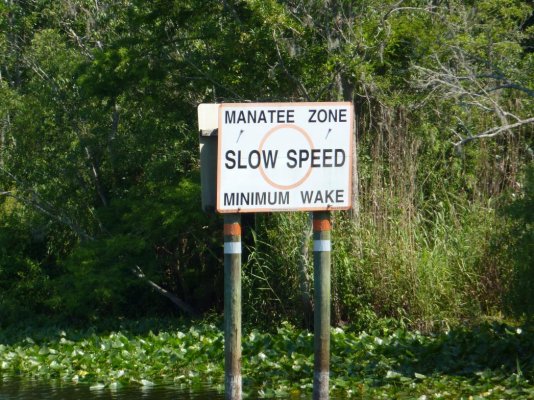timjet
Guru
- Joined
- Apr 9, 2009
- Messages
- 1,920
In Florida there are 3 speed limits that I can think of.
1. The areas where a specific maximum speed is posted. Generally in the AICW that will be a max of 25 mph. Not much discussion or explanation needed.
2. Idle speed no wake. The definition of which is: A speed no greater than that which is necessary to maintain steerage and headway. I guess this can be subject to some interpretation, but for the most part I think most people understand this speed limit.
3. Slow speed minimum wake zone. The definition is: Areas where vessels must be fully off plane and completely settled in the water.
In Florida many people including law enforcement seem to think this includes minimum wake.
I've got some nasty looks and a couple of yells from law enforcement when I've been in minimum wake zones, fully off plane and settled in the water but too fast for their thinking.
Just wondering what you guys think?
My boat puts out a huge wake fully off plane and settled in the water. Probably just as much as doing 18 kts.
1. The areas where a specific maximum speed is posted. Generally in the AICW that will be a max of 25 mph. Not much discussion or explanation needed.
2. Idle speed no wake. The definition of which is: A speed no greater than that which is necessary to maintain steerage and headway. I guess this can be subject to some interpretation, but for the most part I think most people understand this speed limit.
3. Slow speed minimum wake zone. The definition is: Areas where vessels must be fully off plane and completely settled in the water.
In Florida many people including law enforcement seem to think this includes minimum wake.
I've got some nasty looks and a couple of yells from law enforcement when I've been in minimum wake zones, fully off plane and settled in the water but too fast for their thinking.
Just wondering what you guys think?
My boat puts out a huge wake fully off plane and settled in the water. Probably just as much as doing 18 kts.





